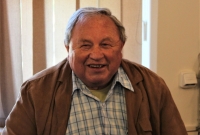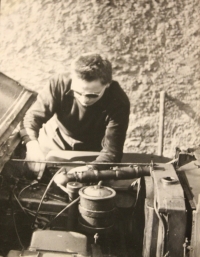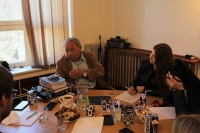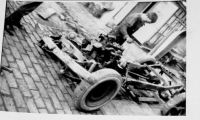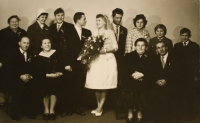"When the Soviets came, I stared blankly. They had interesting cars and those cars had big wheels, in terms of width. There were no such wheels here. I liked that. Then they had Jeeps, I liked that too. And then they had cars that they took from the Germans, using them they came from Ukraine all the way to Kutná Hora. The Germans often abandoned them, or even damaged them, because they ran out of gas. There was an Opel by the Singers, all brown, polished, after some manufacturer from Germany, but it had made the trip to Stalingrad and back, if it was not on a shorter route. And he came to the Czech Republic with the Russians, and I stood by that car, looking at how its beautiful speedometer, and the other alarm clock, made of beige material. Later I learned that when the lights come on, the tachometers - not just the hands and numbers, but the whole glow. It was a transparent material, beige one, and it was glowing all over. I will not go into the technicalities, because you would not be interested, but as I was standing by the car, four young Russian guys came, around twenty years old, they didn't have a tank top like us, we were careful not to catch a cold, they were tough. Smiling, maybe a little drunk, but they were not drunk. They were joking and one of them said to me in Russian: 'Do you want to eat?' I did not understand him, but out of politeness, I nodded my head and he shoved a piece of roll or bun into my hand, it was not bread, they had a commissary. As I was standing by those soldiers, one of them gave me a bun and the other one to trump him, so he said: 'Do you want to ride?' And I was waiting for that and I was already in the car."

